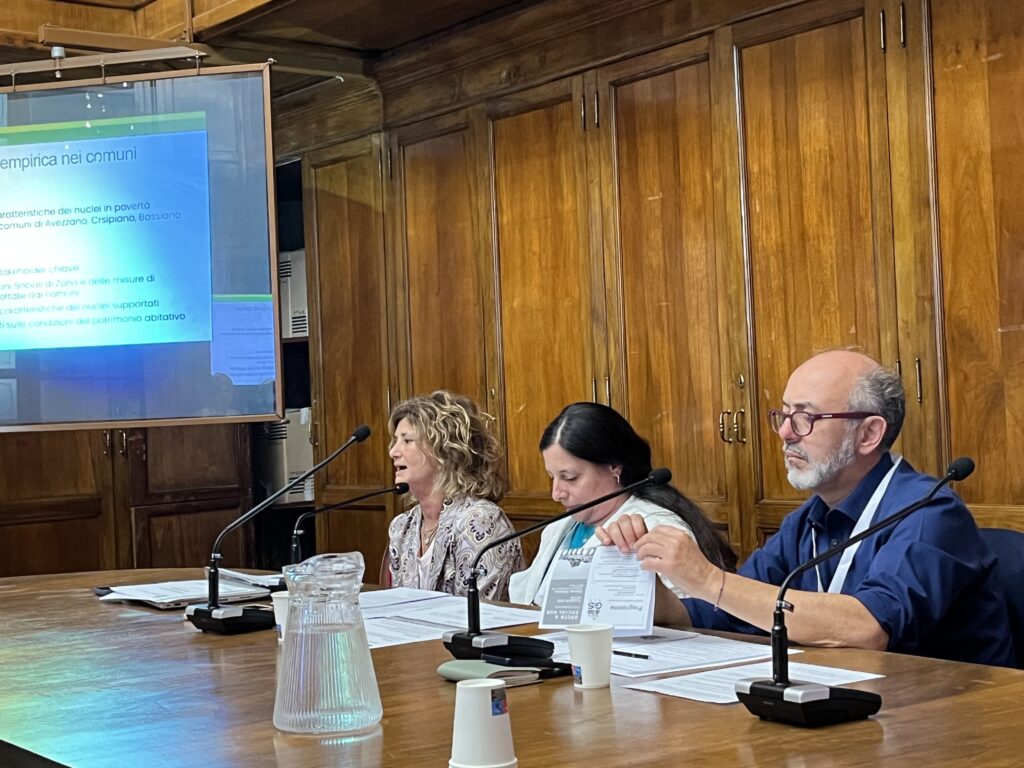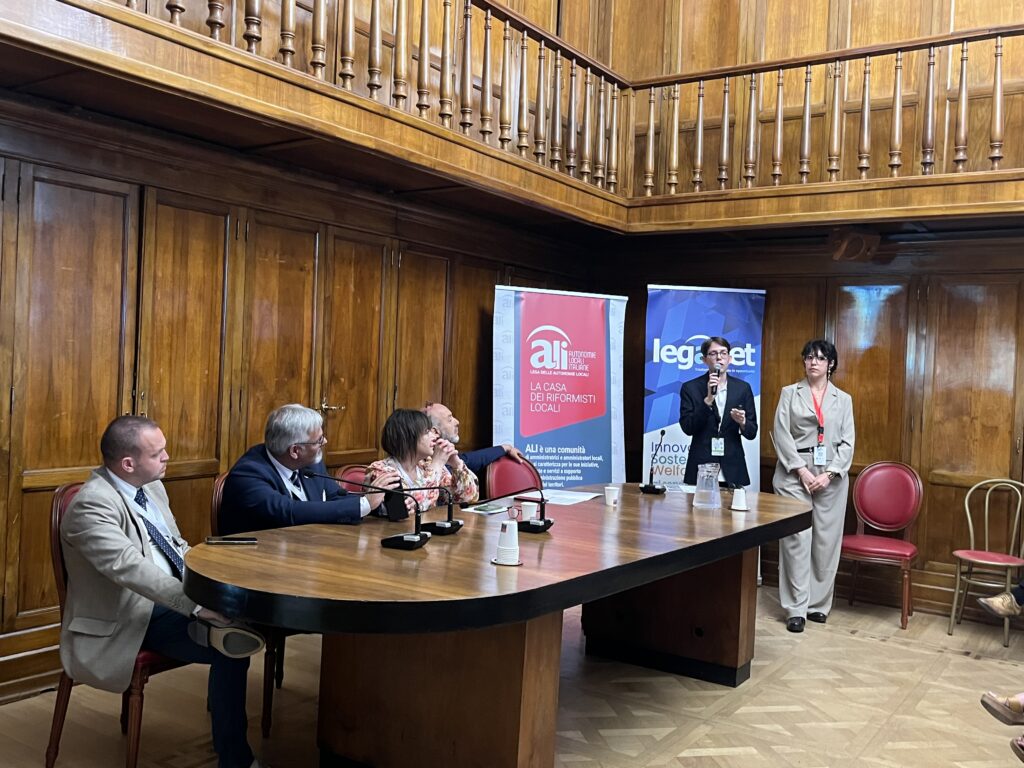Green transition and social justice: the final conference of the Green & Social Hub project will take place in Rome
Rome, July 9, 2025 – The Final Conference of the Green & Social Hub Project was held at Palazzo Valentini, marking a pivotal moment that brought together the project’s partners for one last time. The shared commitment was clear: to continue fostering the exchange of good practices and promoting a just, inclusive, and sustainable ecological transition.
The Green & Social Hub project was launched with the aim of making the green transition not just a technological process, but one that is socially equitable and accessible. A core focus has been the promotion of Renewable Energy Communities (RECs) and the inclusion of vulnerable citizens in environmental innovation processes.

Institutional greetings: municipalities as key drivers of change
The day opened with remarks from Alessandro Paglia, Director of the Project Office and Financial Manager at ALI Nazionale, lead partner of the initiative. He was followed by Alessandro Broccatelli, President of Leganet, who emphasized that a successful green transition must go hand in hand with effective administrative planning, highlighting the central role of local authorities and mayors in driving this transformation.
Joining remotely, Alessia Fulvimari, Project Officer at the European Commission, expressed appreciation for the project, calling it “well done” and aligned with EU sustainability goals.
Three panels, three perspectives on the green transition
1. Action research and European good practices
The first panel featured Patrizia Di Santo and Milena Lombardi from Studio COME Srl, who presented the findings of their research on energy poverty in the three partner municipalities: Avezzano, Bassiano, and Crispiano.
Luigi Acquaviva, from the Association of Cities and Regions for Sustainable Resource Management (ACR+), shared European case studies and innovative models for ensuring a fair and equitable green transition.
2. The role of local authorities: tools, challenges, and solutions
The second panel focused on the role of municipalities in the transition process.
Edoardo Zanchini, Director of the Climate Office of Rome Capital, stressed that municipalities are the closest institutions to families in need, and highlighted the importance of RECs and tools like the recently launched online climate helpdesk and mobile helpdesk services in Rome’s neighborhoods.
Giovanna Bruno, Mayor of Andria and Vice President of ALI Nazionale, spoke about the difficulty vulnerable citizens face in engaging with the energy transition, as their immediate concern is often simply paying the bills. She emphasized the need for greater awareness, collaboration, and structural support to make RECs effective.
Paola Camuccio, Director of the Environment Department of the Metropolitan City of Rome, outlined the complexity of managing a territory with 121 municipalities, some with as few as 98 residents. She called for the creation of bridges between regional policies and local needs, proposing a shared regulatory framework for RECs adaptable to both small and large municipalities.
Alessandra Bailo Modesti, Coordinator of Green City Network, addressed the gap in public understanding regarding the urgency of the climate crisis. She reproposed three pillars for a more understandable and inclusive green transition: Decarbonization, Circular economy, Green and blue infrastructure to enhance biodiversity and combat urban heat islands.

3. Local stories from the project territories
The final panel offered direct testimonies from the project’s participating municipalities.
Maria Antonietta Dominici, Councillor for the Environment of Avezzano, presented the outcomes of local initiatives focused on sustainability and recycling, accompanied by youth participants from the project hubs.
Giovanbattista Onori, Mayor of Bassiano, spoke about the challenges the municipality has faced and the modest yet meaningful results achieved. Together with a local NEET youth, he reaffirmed their commitment to continuing the journey toward sustainability, despite the difficulties.
Luca Lopomo, Mayor of Crispiano, shared the various events organized in collaboration with young people and local stakeholders, including activities involving schools and community engagement around project themes.
Closing remarks: building a network for the future
The conference concluded with remarks from Valerio Lucciarini De Vincenzi, Secretary General of ALI Nazionale, who emphasized the need to build a solid network of municipalities committed to energy transition and social development. He called for pragmatism, shared responsibility, and recognition of the central role of local administrations.
“There is no sustainability without a social dimension,” Lucciarini stated, while also reaffirming the role of Leganet, ALI’s in-house company, in providing tools and services to support municipal planning and empower local communities.
Although the Green & Social Hub project formally comes to a close, it leaves behind a shared path and an active network of administrations, experts, and citizens committed to making the green transition a collective, fair, and achievable challenge for all.

